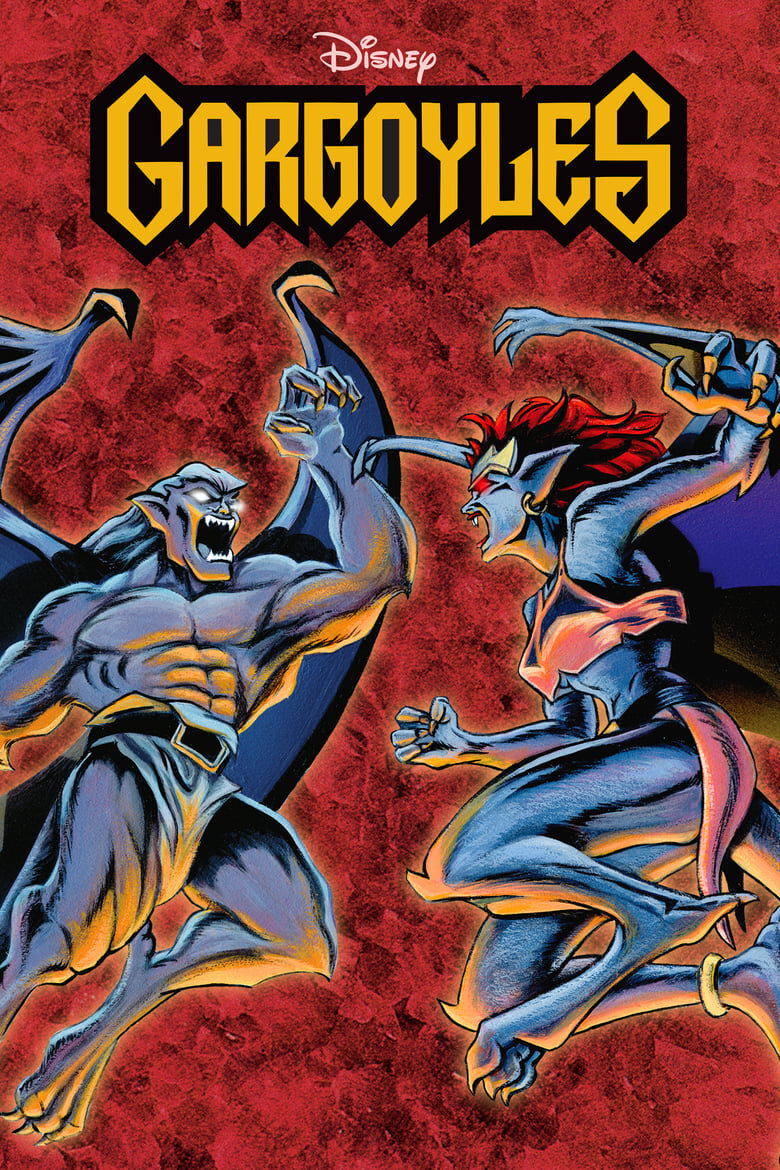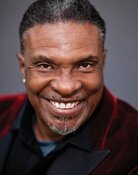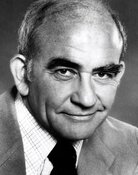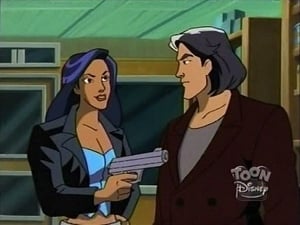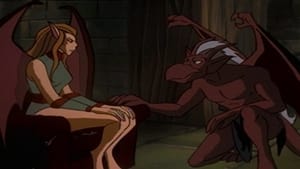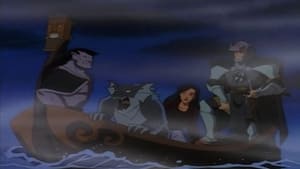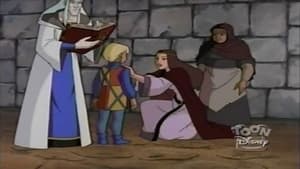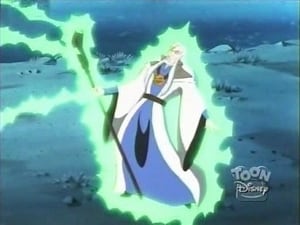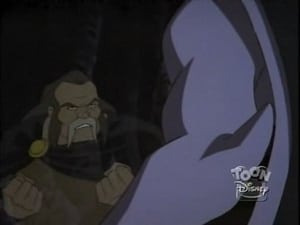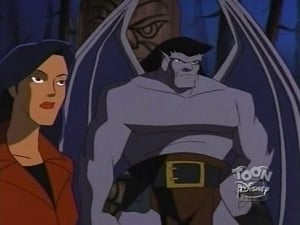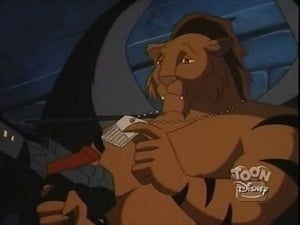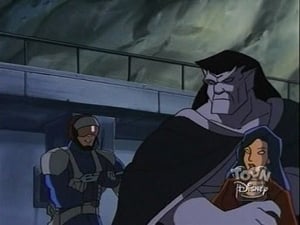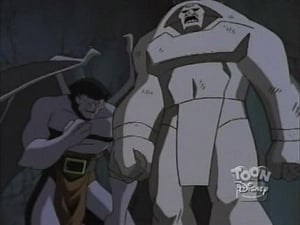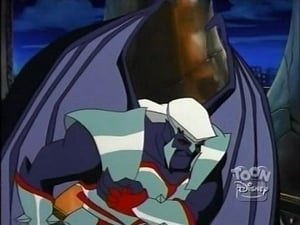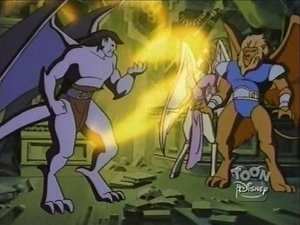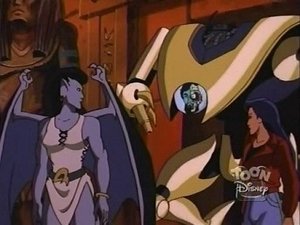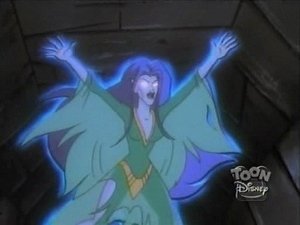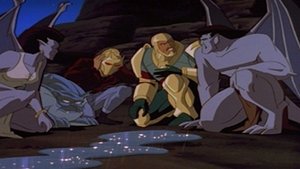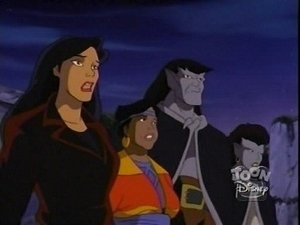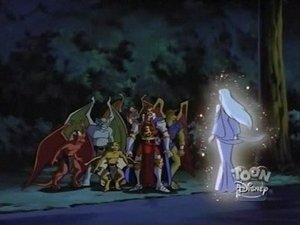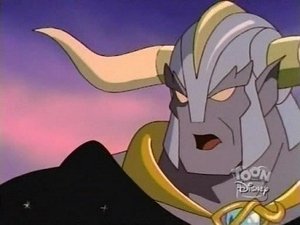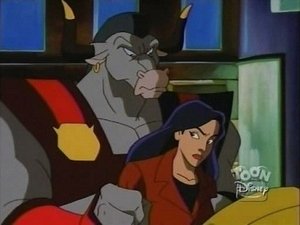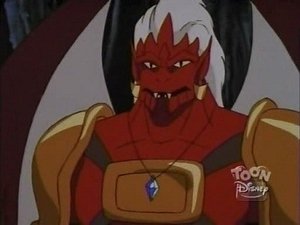Gargoyles
Sanctuary
Season: 2
Episode: 28
Air date: 1995-12-18
Guest stars: John Rhys-Davies
In Paris, the company comes across Demona, Thailog, and Macbeth; all deep in a triangle of treachery.
Ah Paris, the city of love. It makes sense then you have the episode set in this city thematically linked with the concept of love. Get it? It's French, it's Gambit saying mon chéri (except it's Dominique saying it to Macbeth this time). Do you get it yet? Do you?
To be fair though, unlike the previous episodes of the World Tour, at least this time, it doesn't feel as culturally insensitive, but probably because the focus here is more on the character development rather than some misguided homogenous attempt to explore the diversity of other cultures (without actually exploring said diversity). Here, Macbeth and Demona's human alias, Dominique Destine, have decided to hook up in the city of love, but unfortunately for Macbeth, he once again gets the short end of the stick as surprise, surprise, Thailog is back, Goliath's evil clone.
Now that Xanatos has taken a backseat (possibly permanently) as the brilliant schemer that once drove the series' momentum, I suppose Thailog taking over that role is fine, seeing that he possesses the worst traits of his three fathers, Goliath, Xanatos and Sevarius. Not satisfied as being just a cunning strategist this time, he also turns up Sevarius' creep factor on Angela, whom he called a spunky young thing (ew). In a way, despite being repulsive, it also manages to paint him as a sinister threat worth taking seriously, especially when he lacks the pragmatism of Xanatos that kept Goliath and his clan from being destroyed during daylight.
What trips him up though, as shown in the fight with Goliath this episode, is his ego. Whereas Xanatos is brilliant enough to see past his own hubris to plan ahead, Thailog is too busy savoring the lust that stems from his sadism and greed, just smugly outplaying everyone and perching himself atop a pedestal of pride, even naming himself "Alexander" this episode (as in "The Great") despite the fate of the historical figure.
I like how it all plays into the themes of love this episode though, particularly the more tragic elements of it. Thailog is obviously an abuser, but Demona attached herself to him possibly out of blind love as Goliath observed, so obsessed with her quest for vengeance that she's willing to be blindly used by someone like Thailog.
Similarly, Angela has her own form of love that affected her judgment, namely her parental love for Goliath and her struggles to figure out what Demona means to her. Goliath is not happy with this development, however. As it was said in previous episodes, gargoyle culture in this world has no recognition of parent and child, merely clanhood. That culture isn't explored nearly enough to justify Goliath's annoyance though, at least at this point in the series, so I hope that will be corrected in the future. Besides, I think Goliath's irritation stems more from the fact that to recognize Angela as his daughter would mean to recognize Demona as her mother, his mate that spawned their child together, the woman that betrayed him and the clan.
The most tragic element of the love shown here is probably Macbeth, but at the very least, as Goliath told him, he has the advantage of seeing clearly now instead of being blindly led on like Demona did. He might share the same spiritual bond with Demona, but she clearly does not share his enlightenment.
It's not all doom and gloom, however, as the episode also spends a little time playing on Elisa's romance with Goliath, with the latter hinting at her being his true love. It's perhaps appropriate that even in an episode full of angst, love itself provides a sanctuary against the darkness in the city of love.
Side note: I know that Disney's "Hunchback of Notre Dame" was only released a year after this episode's airing, but man, such a missed opportunity for a crossover. That movie was amazing and underrated, its musical numbers having the same larger than life Shakespearean grandiosity that Gargoyles possesses ("Frollo felt a twinge of fear... for his immortal souuul!"). Ah well. Probably better off.
